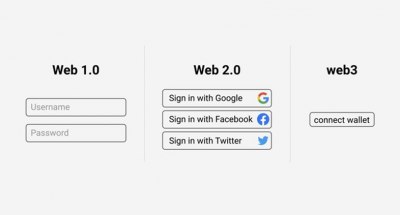
The financial world is directly or indirectly linked to politics. Cryptocurrency, as a new technology, aim to disrupt the financial world. At least, it is presented like that in the media. However, the potential disruption of the financial world inevitably hits also politics, the sovereignty of states and banks.
Politicians are responsible for enacting laws that directly influence the economy. To name just a few things, they can regulate some market, decide about increasing or decreasing taxes, or can subsidy some business or even banks and companies. Economic decisions of politics have a direct effect on the life of people in every country. Politics often misuse the decision right for their personal profit. To prevent that there must be established some sort of common-sense financial controls that dictate how politicians can enact laws and set some borders for their economical decisions. Still, the relationship between politics and the financial world is too complex, and unclear to fully see or understand the full context. Let’s conclude that politicians need to have an influence on the economy since it is one of the most important parts of their job. We generally do not trust politicians much but so far we did not have some better alternative.
Cryptocurrency has grown and proven itself as a disruptive technology that is potentially resistant to sovereign laws and international financial regulations and can be considered as an alternative to the sovereign state’s concept of fiat money. If cryptocurrency adoption should rise to provide bigger personal freedom then it implies at least two things:
- State sovereignty could be disrupted and crypto could expect hard strikes back if not used in a regulated way. There are basically three options for politicians and regulators. They could prohibit, regulate, or adopt cryptocurrency.
- If we fully realize the potential of cryptocurrency and really want to disrupt the financial world together with state sovereignty then we need to have something that could replace politicians.
Prohibition, regulation, or adoption
When a given project is prohibited then it will not be allowed to use it and users might be persecuted. As a consequence, institutional investors will not be allowed to put money into the project so it would not be the ideal candidate for price speculation. Losing value could lead to an inability to use the project coins for something useful and for a PoW project it poses a security issue.
On the other hand, the team behind to project can implement any privacy feature without limitation. It is disputable how such a project could be adopted. Merchants and shops will not be able to legally accept payment via the coins of the project and they could also be persecuted if they violate the law. We could consider prohibited projects as a kind of protest coins for minorities (crypto-punkers). Potential mass adoption of prohibited projects would mean that some states and nations are no longer relevant since people would not use national fiat currency and start to create new economic communities. This scenario is not very probable for many reasons. For example, Monero, ZCash, and Dash are prohibited in some countries (Japan. South Korea, etc.).

The regulation goes hand in hand with adoption. A project that is compliant with regulations and laws can be considered as regulated. Thus, teams behind projects are limited in the implementation of some features and maybe they might be forced to introduce some unpopular functionalities. Let’s have a look at what Satoshi Nakamoto wrote in 2009:
“The root problem with conventional currency is all the trust that’s required to make it work. The central bank must be trusted not to debase the currency, but the history of fiat currencies is full of breaches of that trust. Banks must be trusted to hold our money and transfer it electronically, but they lend it out in waves of credit bubbles with barely a fraction in reserve. We have to trust them with our privacy, trust them not to let identity thieves drain our accounts.”
Satoshi created Bitcoin as a protest to governments and central banks that have significant control over the financial sector. He was fed up with the modern financial system and created an alternative to money controlled by a government or central bank. Bitcoin allows people to use the electronic version of cash. The original vision of Bitcoin and cryptocurrency was to be more than just an investment tool. He wanted Bitcoin to become a tool for daily life for people around the world helping them to avoid usage of fiat. The main purpose of decentralization is the mitigation of trust in controlled money, decrease the overall costs of the financial system, reduce the economic pressure, and transaction censorship.
Can a regulated project fulfill Satoshi’s Vision? Probably not, or not in all aspects. Regulation always means to enforce some control over the project. For example, if you have a look at some recommendations proposed by the Financial Action Task Force’s (FATF) you will see requirements related to KYC/AML. It should be possible to link every transaction with the identities of the sender and the recipient. As a result, full privacy without limitations will probably never be accepted by regulators.
However, blockchain technology is not about Satoshi’s vision. Satoshi wanted something that is not probably 100% achievable in the real world. To be honest, Bitcoin currently does not fulfill his vision. It is easy to track transactions between users and in many cases, it is possible to connect them with a real identity. Moreover, Bitcoin does not scale and Lightning Network is a rather centralized system that will always suffer from problems related to centralization.
We can benefit from using blockchain technology despite compliance with regulations. Regulations are about the discussion between teams, the crypto community, and regulators. We can either do a revolution and ignore all rules and laws, or we can communicate and hopefully create a better financial world. Both approaches are valid. There will be projects making revolution and project making evolution. Evolution is about improving the current financial system and giving people more freedom, alternatives, and power. To fix just part of the current financial system or offer regulated alternatives could be a significant improvement and an important step toward decentralization.
How we can benefit from blockchain
Properly implemented open and decentralized blockchain technology can mitigate the trust and reliance on governments and central banks. All we need is tolerance for open blockchains. Adoption will never cross a needed number of users if we take the revolution way. If we want to create some kind of decentralized value, decentralized money, and new social or economic structures, people must be sure that they can freely participate without fear of persecution.
It is hard to predict how states and nations embrace open public blockchain and how they utilize them. To be honest, it can never happen. We can expect a new form of digital money built upon private blockchains where states and banks stay in control of the total coin supply. It is not necessarily bad. Controlling supply is one of the tools for driving national economies. Public blockchains as an acceptable alternative is a win-win situation and it is good enough for the beginning.
Blockchain is about avoiding middlemen what can reduce the cost of services, increase trust, and make the service more secure and reliable. We can benefit from blockchain technology without replacing fiat currencies as the first step. We have to learn how to use blockchain technology and people must build trust in it. And it is not only about blockchain. There are smart contracts allowing the creation of decentralized self-executing digital contracts and there could be other technologies that will be used within “blockchain”.
If we want to replace something we need to have a viable alternative or some concept to do so. The blockchain transaction system itself is not able to replace banks. Let’s try to avoid middlemen as the first step and then, a bit later, we can think about replacing the current banking system.
Let’s have a look at how Charles Hoskinson answered when asked for the future of banks and central banks:
“They have to — instead of being middlemen of necessity, they have to become middlemen of value. There are all these entities in society that provide a service, and we don’t really like them, but they’re there and we need them to get something done. It’s like the eBays, the Airbnbs, the Ubers. They’re there. They provide a lot of utility. They bring two sides of a market together, a producer and a consumer. But then what happens is that they get a monopoly, and as a consequence of that, they start to de-platform people or screwing people on fees. They really sculpt a market in a way that really becomes unfair.
So, what our technology is doing is getting rid of these middlemen of necessity. It’s allowing the producer and the consumer now to find each other and interact with each other as if Uber existed or Airbnb existed, or the other middleman existed, but instead of having that middleman taking value away from them, we no longer need them.
The point is: consumer choice and the freedom of movement is increasing. Instead of being locked into a system and forced to live in that system and endure the consequences of that system — like if you’re in Venezuela — you now have a way of insulating yourself a bit or voting with your digital fee and moving into a different system. So, in the not too distant future — instead of just having one currency, and say, if I live in America, I’m dollars, if I live in Europe, I’m euros — you can now actually have portfolio-based wealth with some gold, some silver, some stocks, some different currencies, and you can spend any one of them at any point of sale.
So, when you go to Starbucks, you’ll be able to just tap your phone, you pay them in gold. They got paid in dollars. They have no idea that you’ve paid them in gold because that infrastructure is all there and nobody even knows that composition. You could be from Ukraine. You could be from South Korea. It doesn’t really matter. So, what does it mean? It means that the impact that central banks have upon your lifestyle and your quality of life diminishes, and if they’re going to be relevant, then they actually have to become middlemen of value. They add something to your life, they add something to the transaction, they add something to the economy. And if not, they become obsolete like the horse and buggy makers and the horsewhip makers and the others that got pushed out by the cars, and society moves on and changes.”
We cannot predict the future but if we are able to realize Charles’s vision we can find out that we no longer need traditional banks in a form we know them today. Decentralized finance can take over a significant part of the bank’s job. Banks can either adopt the technology and add some value, cooperate, or go away.
It is a question of how states and nations will look and what decentralized project governance brings us. Smart contracts could disrupt also this part of states. But again, let’s firstly try to build decentralized services and companies, and then, if we grasp the technology, we can try to implement it into government structures.

Adoption is mainly about utility
Cryptocurrency must serve to people to be adopted. To pay with a volatile asset is not a utility that many people would want to use. Bitcoin is not money and can hardly ever be. Not during our life. It is mostly a highly speculative asset and it is hard to predict the price short-term and long-term.
ICE Chief Jeffrey Sprecher recently said about Bitcoin and crypto:
“We don’t think that the whole space will be relevant and grow unless there are real use cases and we do … think that a use case is going to be the digital transfer of value through payments.”
You could easily find more similar statements. Newcomers do not come to buy crypto since there is no reason. Crypto can be useful in states like Venezuela where local fiat currencies suffer from high inflation or people want to cross a border and take some value with them. Still, it might be smarter to buy Tether than Bitcoin.
If you try to search for potential real use cases of cryptocurrencies you might put together the following list:
- Peer-to-peer electronic cash system as Satoshi envisioned it. Not store of value but really the alternative to fiat. It seems that only stable coins can help here.
- Still, the store of value could be a possible use case.
- Programmable money what can be achieved via smart contracts. Smart contracts are simply blockchain-based executable code that actions a particular outcome provided certain conditions have been met. Money programming allows us to avoid middlemen.
- Collateral is needed for lending and it has become one of the most important applications of the burgeoning decentralized finance movement, enabling individuals to collateralize fiat loans against cryptocurrency and vice-versa.
- Blockchain governance enabling decentralized voting and some kind of decentralized decision making.
- Non-fungible tokens (NFTs) representing unique digital assets. These typically comprise in-game collectibles nowadays but it can change in the future. The ability to create non-fungible tokens and smart contracts are needed for that.
More and more people start to talk about real use cases. Bitcoin does not scale well so it is hard to imagine it as digital cash. Even if Lightning Network is finished it is not a good idea to spend something that you use as a store of value.
Real use cases require a protocol that scales, is decentralized, is secure, and has smart contracts. Without resolved scalability, there is no decentralized cash system. Without smart contracts, there is only a limited set of use cases.
Cryptocurrency is still very young and we are still at the stage of searching for solving real use cases and offering some interesting functionalities. We have many transaction systems and Bitcoin is trying to become a store of value. However, no industry has been disrupted by a public blockchain. Big companies work on private blockchains. Private blockchain scales well and is sufficiently secure. However, some control is kept by owners of validator nodes so these projects can never be as trusted as public alternatives. Public blockchains need technological improvements to be able to compete with private ones. In a local context, it might be just fine to use private blockchains since from the global perspective not everything must be stored in a global ledger. Some form of interconnection between private and public blockchains is very probable. On the other hand, decentralization is mainly about trust so there will be use cases where only public blockchains can eventually win.
Cardano is built to be useful and comply with regulations
Charles Hoskinson visited many countries and spoke with many politicians and businessmen so he knows very well how to build Cardano and what is important. Not only Charles do the job. For example, EMURGO has joined the Chamber of Digital Commerce & Blockchain For Europe, in order to have sustained dialogue with government-level stakeholders about blockchain-friendly initiatives.
IOHK team is able to build a useful project that can be mass-adopted due to compliancy. And it is a difficult task since conditions and laws change over time so also Cardano must be easily adaptable. Looking closer at the problem, it is all about transactions.
There is a lot of requirements about how to bind an identity with transactions and how much meta-data is needed to flow with these transactions. There might a requirement to pre-register an account to be able to accept payment etc. It is not the actual technology of moving value between Alice to Bob or one trusted enclave to another. It is how do we fit this into a regulatory model that will work well for China, for the United States or for Korea. Every state is different and has its own needs. Cardano will be ready for usage in every state if cryptocurrency is not completely prohibited.
The smart transaction could allow privacy since you might be allowed to pay for adult content if you prove you are over 18. It is needed to have some notion about identity. It does not necessarily mean that the recipient must know your identity. Modern technologies are able to prove you are an adult without revealing your identity to the transaction recipient. Sometimes, it might be just fine to send private transactions if it can be proved that it is not used for tax-evasion or sending money to terrorists.
Cardano will allow building any kind of business above smart transactions. Smart contracts are probably game-changer in the crypto industry and we can see many interesting services around decentralized finance (DeFi). We can also expect a Cardano stable coin and ADA could be used as collateral what adds some value to it.
Summary
Cryptocurrency adoption will disrupt governments but necessarily not in a negative way. The adoption of a prohibited project is a kind of disruption that could probably lead to chaos and uncertainty. However, the adoption of blockchain technology could also have a positive impact and we can still talk about the disruption of the current financial system. The change is inevitable and we will see it once the blockchain technology mature.
We need smart contracts since it allows us to redefine not only ownership of things but also the decision process or some hierarchical structures. Smart contracts can be a very powerful tool in the future and enable us to build useful services.
Cardano could be the first project that will be ready for business and mass adoption. At the same time, Cardano will be able to comply with regulations so nothing can prevent the adoption and usage of ADA.
Source: Cryptocurrency adoption inevitably disrupts governments
 Cardano can give crypto a cash-like experience
Cardano can give crypto a cash-like experience Cardano will have a new Lace wallet
Cardano will have a new Lace wallet Why buy and hold ADA
Why buy and hold ADA Will the majority adopt sooner Bitcoin or Cardano?
Will the majority adopt sooner Bitcoin or Cardano?